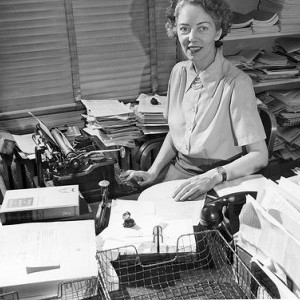
Sharing is Caring
Browse Categories
Unblocked: Stop Researching & Start Writing by Tim Sanders
August 16, 2012
The #unblocked series is a collection of blog posts that address a common malady in authors: Writer’s Block. Many of us have faced ‘the wall’ when trying to type or write our books. Even if we have a production schedule, and defined writing times for each day (you have this, right?)…writer’s block will take over and you’ll get behind.
Think of writer’s block like performance procrastination. The writing process is a performance of sorts, where you are trying out words in an attempt to tell a story or share a point. When you are finished, you are confronted with your own work, for better or for worse. Much like the proverbial psychic on the TV show, the process of performing is mentally and often emotionally taxing. And criticism, which often comes in torrents, wounds our soul, because this is our creative work.
So, we look for excuses not to write. And research is a good one, at least in the mind of the stuck-author. One of the biggest snooze alarms you can punch on your day’s writing project is the Google search button. Search, click, read, re-search, click again, and boom – your entire afternoon is spent re-searching. You feel like you’ve been productive, except for that blank Word document staring back at you.
This experience underscores Benjamin Franklin’s advice: “Never confuse motion with action.” While you may have read the most about the subject, you’ve written the least – making you a researcher and not an author.
It’s too easy to conduct one more search, just to see what else you’ll find, but each sleuth-session stands between you and writing! The more you research, the more external words you accumulate, and if you don’t watch out, too many of them will find their way into your manuscript. And they will choke out your voice, like weeds overtake grass.
There are several ways you can tame the Research Block. First, give research it’s own place in your production schedule. Design a time budget for the project’s production. If there’s overlap between research and writing, then schedule the them at different ends of the day. I’d suggest writing in the morning, based on work done the previous afternoon. If you are not a morning person, you should really consider it, according to research.
By separating the two projects, you’ll build in discipline not to minimize your Word screen and boot a browser when the writing gets tough. This is just a start, though. Invest in a helpful app that will offer you an uninterrupted writing experience (here’s a collection of them). In extreme cases, I’ve solved this by writing on my computer in my basement studio, with no access to the internet!
Don’t worry about losing touch with the fact. You’ll still do enough research in the end for your book to be true, or in the case of a novel, accurate. In fact, by letting research trail the words to some extent, you are likely leverage your imagination and flex your true writing muscles.

About Tim Sanders
Tim is a bestselling author and former Yahoo! executive with a mission to disrupt the traditional publishing and self-publishing industries and share knowledge with authors looking to publish and market high-quality books.
Follow @sanderssays